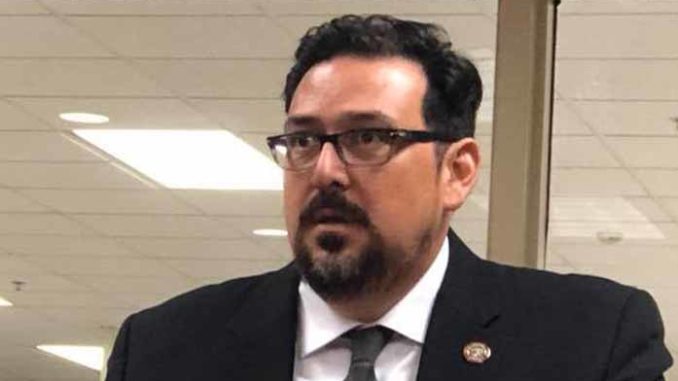
What could have been an informative interview about Maricopa County’s 2020 General Election was turned on its head last month when former-County Recorder Adrian Fontes disparaged the Arizona Attorney General’s Office investigators and derided their boss.
Edited audio recordings released last week cover about half of the one-hour interview Fontes previously said occurred on Oct. 28. The release of the recording also calls attention to MSNBC, which aired a segment about the Fontes interview while giving viewers the impression Fontes is considered an expert in election integrity.
The news report failed to tell viewers that the Arizona Supreme Court issued a damning ruling last year against Fontes, finding he “acted unlawfully” by creating his own election rule for Maricopa County voters which conflicted with Arizona’s Elections Procedures Manual.
As a result of Fontes’ conduct, the Arizona Supreme Court ordered Maricopa County to pay nearly $59,000 to the prevailing party that challenged Fontes’ conduct. Maricopa County voters turned Fontes out of office during the same Nov. 3 election that became the subject of Cyber Ninjas’ Senate-initiated audit earlier this year.
“It is hard to imagine that the media would prop up someone who blatantly thumbs their nose at the law,” Sen. Warren Petersen, chair of the Senate Judiciary Committee told Arizona Daily Independent. “Fortunately, enough voters figured it out.”
Cyber Ninja’s audit report to Senate President Karen Fann in September noted several anomalies, some of which involved how Fontes’ staff performed their duties during the 2020 election. Fann forwarded the report to Attorney General Mark Brnovich for possible further action.
After his interview in October, Fontes called the AGO investigation a “political stunt.” He did not publicly indicate at the time that an audio recording of the interview existed.
In the 25-minute audio, two AGO special agents allowed Fontes to freely expound on his belief that the investigation is politically motivated by Brnovich’s campaign for U.S. Senate. Fontes also said Brnovich is pushing “a false narrative” of a stolen election, and that from the investigators’ “body language and stuff” Fontes thinks the agents also believe the investigation “is bull****.”
But it was not just Fontes’ partisan comments and lack of forthright answers captured on the audio recording that have garnered attention.
During the AGO’s interview, Fontes claims there is “no such thing as a voting machine in Arizona” and that “every vote is on a paper ballot.” Fontes’ statement, according to some election officials, is misleading.

Several counties rely exclusively on electronic, touch-screen machines for voters casting their votes in-person instead of by mail. Even Maricopa County has “accessible ballot marking devices” for use by voters whose physical impairments or language barriers make it difficult to utilize the county’s standard fill-in-the-oval paper balloting.
Once voters “mark” or select their votes on the touch-screen, a record of those votes is printed out on paper which is then sent for counting, also known as tabulation. Most people would refer to the process as voting by machine, says Cochise County Recorder David Stevens, whose county is one of those which utilizes touch-screens instead of paper ballots for in-person voting.
Attorney General Mark Brnovich’s staff did not respond to a request from Arizona Daily Independent for a comment about the Fontes interview.
The issue considered by the Arizona Supreme Court in advance of the November 2020 General Election involved Arizona’s Elections Procedures Manual which must be followed by all 15 counties. The manual advises vote-by-mail voters to request a new ballot if they mis-vote any contest on the ballot.
But during Maricopa County’s March 2020 Presidential Preference Election and the August 2020 Primary Election, Fontes distributed a different instruction with the early ballots. His instruction told voters to simply cross out any mistake and return the ballot instead of requesting a new one.
Voters following Fontes’ unlawful instruction would guarantee their ballot was subjected to adjudication, aka human interpretation. It also meant there was a good chance the voter’s desired vote would not be counted.
Fontes conduct led to a legal challenge by Arizona Public Integrity Alliance, and on Sept. 10, 2020 the Arizona Supreme Court enjoined Fontes from providing the instruction ever again.
“We hold that the Recorder acted unlawfully by including the New Instruction with mail-in ballots,” Associate Justice Andrew Gould wrote for the Supreme Court. “The Recorder does not have the constitutional or statutory authority to promulgate mail-in ballot instructions, nor does he have the authority to create voter guidelines for correcting overvotes to ensure that they will be counted.”
Gould added that “when public officials, in the middle of an election, change the law based on their own perceptions of what they think it should be, they undermine public confidence in our democratic system and destroy the integrity of the electoral process.”
